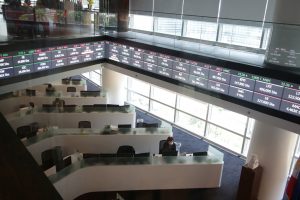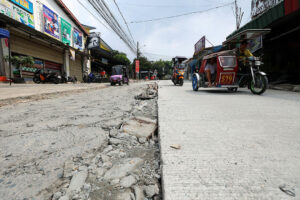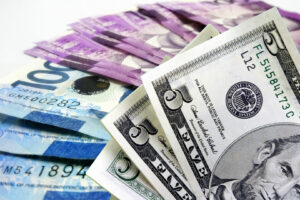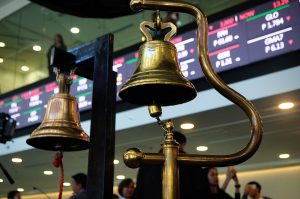Philippine inflation may have slightly accelerated in October amid elevated prices of food, fuel and electricity as well as a weak peso, analysts said.
A BusinessWorld poll of 17 analysts yielded a median estimate of 1.8% for the consumer price index in October. If realized, October inflation would have slightly picked up from the 1.7% clip in September but slowed from the 2.3% seen in the same month last year.
The median estimate also falls within the Bangko Sentral ng Pilipinas’ (BSP) 1.4-2.2% forecast for October.

It may also be the fastest clip in eight months or since the 2.1% in February and would match the 1.8% in March.
October could likewise mark the eighth month in a row that inflation undershot the BSP’s 2-4% target.
The Philippine Statistics Authority is set to release the October inflation data on Nov. 5.
Aris D. Dacanay, economist for the Association of Southeast Asian Nations at HSBC Global Investment Research, said inflation likely settled at 1.8% in October as prices of vegetables rose following typhoons.
“Electricity prices also increased as the depreciation of the peso over the US dollar led to higher generation charges,” he added.
The Manila Electric Co. hiked the overall electricity rate by PHP 0.2331 per kilowatt-hour (kWh) to PHP 13.3182 per kWh in October.
Moody’s Analytics economist Sarah Tan said increased transport and fuel prices may have also contributed to faster inflation in October.
“Higher transport and fuel costs, together with weather-related disruptions affecting some food items, are putting mild upward pressure on prices,” she said in an e-mail.
In October, pump price adjustments stood at a net increase of PHP 1.80 a liter for gasoline, PHP 2.10 per liter for diesel and PHP 1.10 per liter for kerosene.
“Fuel prices also remained stable; global oil prices cooled in October, offsetting any inflationary impact brought by a weaker peso,” Mr. Dacanay said.
In October, the peso performed weaker against the greenback at PHP 58.850 per dollar, slipping by 65.4 centavos from its PHP 58.196 finish at end-September. The peso also hit a new all-time low of PHP 59.13 versus the greenback on Oct. 28.
“Downside price pressures also persisted (in October), the biggest coolant being rice. The price of regular milled rice in Metro Manila remained stable at PHP 39.4 a kilogram despite the ongoing import ban on the grain,” Mr. Dacanay said.
Bank of the Philippine Islands Lead Economist Emilio S. Neri, Jr. said lower prices of meat, fruit and oil could have also prevented further acceleration of inflation.
“Going forward, upside risks to inflation are building as favorable rice base effects fade and the extension of the rice import suspension through yearend adds further pressure,” Mr. Neri said.
President Ferdinand R. Marcos, Jr. had earlier ordered a 60-day suspension of rice imports starting Sept. 1 to support Filipino farmers during harvest season and to stabilize rice prices.
The suspension was originally supposed to end on Nov. 2 but is now expected to be extended until end-2025. The ban applies only to imports of regular milled and well-milled rice.
Sticky core inflation
Meanwhile, core inflation is expected to remain “sticky,” analysts said.
“That is partly driven by firm inflation expectations and recent wage increases. Further, the peso has weakened broadly since June, feeding through to services and other core components as firms adjust prices to reflect higher costs,” Ms. Tan said.
Core inflation, which excludes volatile prices of food and fuel, slowed to 2.6% in September from 2.7% in August. It averaged 2.4% in the nine-month period, easing from 3.1% in the same period a year ago.
Union Bank of the Philippines Chief Economist Ruben Carlo O. Asuncion said in an e-mail that he expects core inflation to remain near that level in October.
“This stickiness suggests underlying demand-side pressures and second-round effects (e.g., wage adjustments, service costs) are persisting despite low headline inflation. It signals that disinflation is largely driven by volatile items, while structural price components remain firm,” Mr. Asuncion said.
Security Bank Chief Economist Angelo B. Taningco said in an e-mail that core inflation will likely remain elevated in the coming months amid holiday-driven spending.
Meanwhile, Maybank Investment Bank economist Azril Rosli said core inflation may settle between 2.5% and 3% until December.
“(This is due to) holiday season labor market tightening, annual rent adjustment cycles incorporating (year-to-date) inflation expectations, utility cost pass-through to business operating expenses, school year 2025-2026 tuition adjustments continuing to flow through, healthcare cost pressures from pharmaceutical imports affected by peso weakness, and the BSP’s expected continuation of supportive monetary policy,” he said in an e-mailed note.
Below 2% inflation
Despite emerging risks, analysts still expect full-year inflation to settle below the 2-4% target band of the central bank.
“Looking ahead, inflation is expected to remain manageable, averaging below the BSP’s 2-4% target this year and hovering around the midpoint of the target range next year,” Chinabank Research said in an e-mail.
If the 1.8% median estimate materializes, headline inflation would average 1.7% in the 10-month period, matching the BSP’s goal for the year.
For 2026, the central bank sees inflation accelerating to 3.1%, before slowing to 2.8% in 2027.
“Even with slight upticks in Q4, full-year inflation will likely stay below the BSP’s 2-4% target range, thanks to benign global commodity prices, improved domestic food supply, and policy support and subdued demand conditions,” Mr. Asuncion said.
This expectation gives the central bank room to continue its accommodative monetary policy until yearend and potentially in 2026, analysts said.
“We don’t expect the central bank to deviate much from their planned monetary policy easing path, especially if economic growth remains muted,” Reinielle Matt M. Erece, economist at Oikonomia Advisory & Research, Inc., said in a Viber message.
Last month the Monetary Board cut its benchmark policy rate by 25 basis points (bps) to 4.75%, the lowest in over three years. This brought its cumulative reductions to 175 bps since it began its easing cycle in August 2024.
BSP Governor Eli M. Remolona, Jr. has penciled in another 25-bp cut at the Monetary Board’s last meeting this year on Dec. 11 and potentially more in 2026 as they seek to support the economy amid weak business sentiment due to the flood control scandal.
“Looking beyond December, the BSP could still deliver up to two additional cuts in 1H 2026 if growth continues to run below potential,” BPI’s Mr. Neri said. “The central bank may also align its policy path with that of the Federal Reserve, particularly if markets begin to price in aggressive US rate cuts after Chairman Powell’s term ends in May 2026.”
Last week, the Fed delivered its second 25-bp cut this year, bringing its interest rate to the 3.75-4% range. This brought its cumulative cuts since September 2024 to 150 bps.
However, Fed Chair Jerome H. Powell signaled a pause at their next rate-setting meeting this year, citing risks from the unavailability of economic data due to the ongoing US government shutdown. — Katherine K. Chan






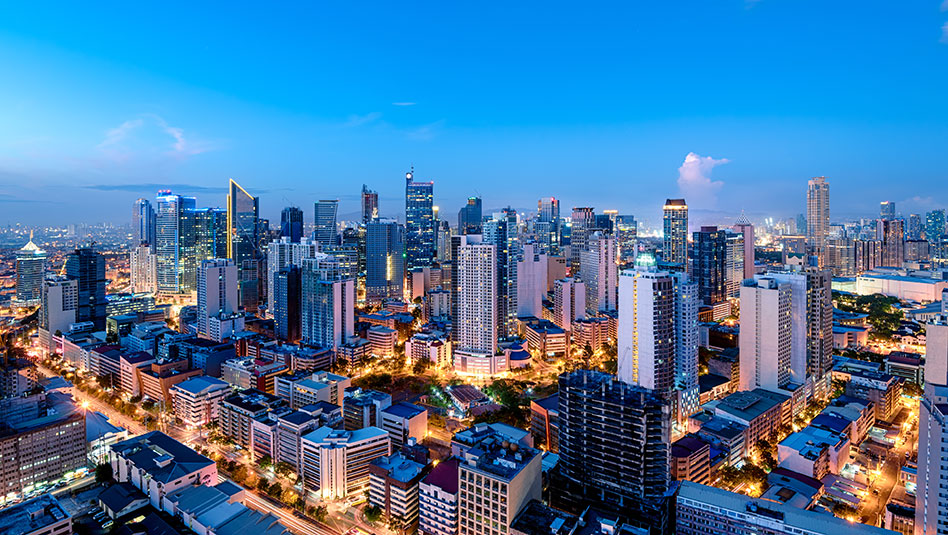
 DOWNLOAD
DOWNLOAD





